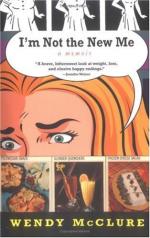The next desires to be informed how much of the story is autobiography, and requires the regiment and company in which my brother served.
And now I am haughtily taken to task by some unknown nature for allowing my heroine to be too much attached to her brother. I am told that this is impious; that only our Maker should receive such adoring affection as poor Mary offered to dead Roy.
Having recovered from this inconceivable slap in the face, I go bravely on. I open the covers of a pamphlet as green as Erin, entitled, “Antidote to the Gates Ajar;” consider myself as the poisoner of the innocent and reverent mind, and learn what I may from this lesson in toxicology.
There was always a certain share of abuse in these outpourings from strangers; it was relatively small, but it was enough to save my spirits, by the humor of it, or they would have been crushed with the weight of the great majority.
I remember the editor of a large Western paper, who enclosed a clipping from his last review for my perusal. It treated, not of “The Gates Ajar” just then, but of a magazine story in “Harper’s,” the “Century,” or wherever. The story was told in the first person fictitious, and began after this fashion:
“I am an old maid of fifty-six, and have spent most of my life in boarding-houses.” (The writer was, be it said, at that time, scarcely twenty-two.)
“Miss Phelps says of herself,” observed this oracle, “that she is fifty-six years old; and we think she is old enough to know better than to write such a story as this.”
At a summer place where I was in the early fervors of the art of making a home, a citizen was once introduced to me at his own request. I have forgotten his name, but remember having been told that he was “prominent.” He was big, red, and loud, and he planted himself with the air of a man about to demolish his deadliest foe.
“So you are Miss Phelps. Well, I’ve wanted to meet you. I read a piece you wrote in a magazine. It was about Our Town. It did not please Me.”
I bowed with the interrogatory air which seemed to be expected of me. Being just then very much in love with that very lovable place, I was puzzled with this accusation, and quite unable to recall, out of the warm flattery which I had heaped upon the town in cool print, any visible cause of offence.
“You said,” pursued my accuser, angrily, “that we had odors here. You said Our Town smelled of fish. Now, you know, we get so used to these smells we like ’em! It gave great offence to the community, madam. And I really thought at one time—feelin’ ran so high—I thought it would kill the sale of your book!”
From that day to this I do not believe the idea has visited the brain of this estimable person that a book could circulate in any other spot upon the map than within his native town. This delicious bit of provincialism served to make life worth living for many a long day.




